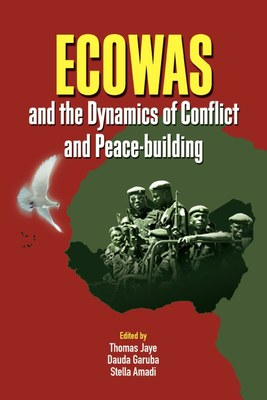West Africa’s Trouble Spots and the Imperative for Peace -Building (Printed)
West Africa’s Trouble Spots and the Imperative for Peace -Building
This monograph highlights the necessity for taking preventive measures in the form of peace-building as a sustainable and long-term solution to conflicts in West Africa, with a special focus on the Mano River Union countries. Apart from the Mano River Union countries, efforts at resolving other conflicts in say, Guinea Bissau, Senegal, C?te d’Ivoire and Nigeria, have suffered from a lack of attention on the post-conflict imperatives of building peace in order to ensure that sustainable peace is achieved. Given the often intractable and inter-related nature of conflicts in this region, it argues for the need to revisit the existing mechanisms of conflict resolution in the sub-region with a view to canvassing a stronger case for stakeholders towards adopting the peace-building strategy as a more practical and sustainable way of avoiding wars in the sub-region. Peace-building in consonance with its infrastructure is a more sustainable approach to ensuring regional peace and stability and, therefore, ensuring development for the peoples of West Africa. Dr Osita Agbu is currently a Senior Research Fellow at the Nigerian Institute of International Affairs, Lagos. His areas of specialization include Peace and Conflict studies, Governance and Democratization and Technology and Development. He was until recently, a Visiting Research Fellow at the Institute of Developing Economies, Chiba, Japan.



